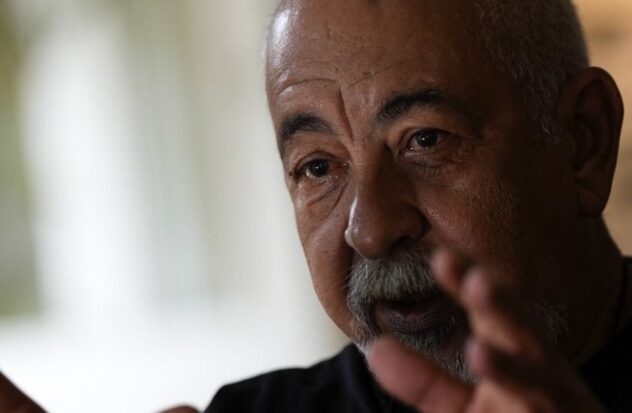CITY OF PANAMA.- He writer Cuban Leonardo Padura believes that Cuba He lives in a dystopia, an imaginary world where it seems that nothing changes or works, and yet society continues to operate and experience many changes, he said in an interview with AFP.
The author of The man who loved the dogs, who participates in Panama in the literary festival Central America Counts, He stated that he prefers to stay in Cuba because his cultural references are there.
Padura, 68, also assured that the most important thing is that his books are read by Cubans, despite being invisible in official channels.
QUESTION: Is something changing in Cuba?
ANSWER: There is a problem with Cuba, since the socio-political economic system is the same for more than 60 years it seems that nothing happens and many changes occur in Cuban society. For example, now there are these small private enterprises that are taking advantage of all the spaces that the inefficiency of the State has created during these years.
On the other hand, there have been these explosions of people’s discontent that have had a very harsh repressive response. And that policy of the United States (…) they think that with a policy of confrontation they are going to change things in Cuba and that has not borne fruit and it will not bear fruit either.
Q: In Gabriel García Márquez’s Macondo the air seems not to flow, while in Isabel Allende’s The House of the Spirits everything moves. What is Cuba most like?
A: Cuba is more like a dystopia story. It is that place where a structure has been created in which things work with very specific codes. I am a smoker, but if you ask me how much a box of cigarettes costs in Cuba, I can’t tell you. And if you ask me where I can buy them, I can’t tell you either. The fact is that I buy cigarettes.
All the structures are altered and you don’t know exactly how things work and yet they continue to work.
“Cuba is my place”
Q: Will there ever be any kind of major change in Cuba?
A: I hope so. I trust dialectics. I think yes, there may be. Time will tell.
Q: Can you love a place where you can’t sell the same books that you can sell in another country?
A: If you start to have an attitude of hate and rejection you are poisoning yourself. The concept of Cuba is much bigger than a government. My books have been published in Cuba, although the most recent ones have not come out. The reason they tell me is that there is a lack of paper, and there really is a lack of paper. We have published through alternative means and people access my books in one way or another. So, yes I am invisible in the official channels, but in some way I am visible to Cuban readers and that is the most important thing.
Q: Have you never thought about leaving Cuba?
A: I think about it every day, but I also think that I shouldn’t do it.
Q: Why?
A: Because it is my place; There is my culture, my language, my family, my references; There is my literature, my characters. My conflicts have to do with that Cuban reality.
“Chronicle of reality”
Q: What role do Cuban artists currently play?
A: Everyone has to do their artistic work and everyone must do it from their conditions, with their perspectives, with their interests. I can’t tell others how to write or how to act or paint. I know how I have to write and I write literature that questions reality, that tries to show and chronicle that reality.
Q: Have you often repressed yourself from writing or do you not care?
A: No, I don’t care. There are ethical limits that one must respect.
Q: In Latin America we are seeing presidents like Javier Milei in Argentina or Nayib Bukele in El Salvador. Are we always condemned to extremism?
A: We are living a parody, but there is no greater parody than seeing (Donald) Trump in a courtroom in New York or knowing that the Prime Minister of Italy (Giorgia Meloni) censors and puts writers on trial. In Europe there are characters like Milei and Bukele, and sometimes even worse. There is no society more perverse than Chinese society and everyone trades with the Chinese and it seems perfect to them. So I don’t think we are the worst in the world by any means.
Source: AFP



